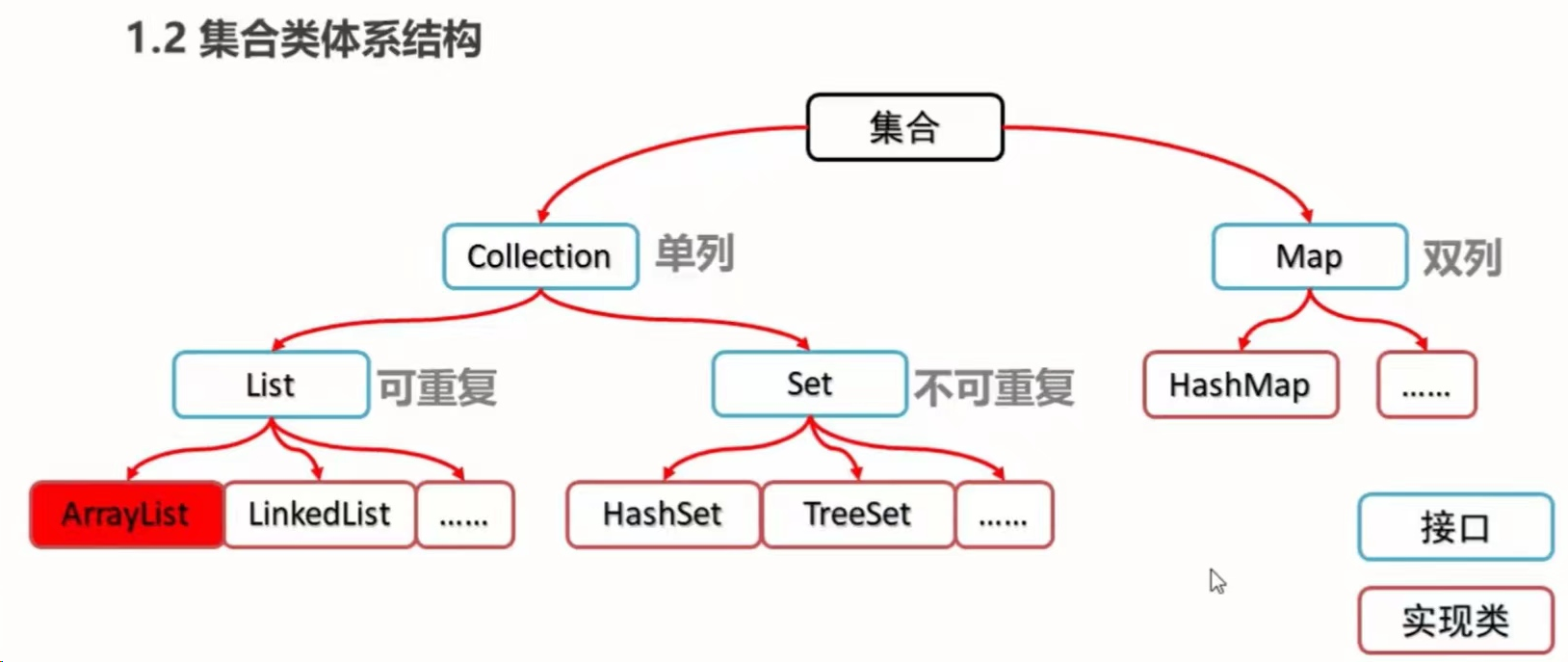4.1 多线程的实现方法
继承Thread类
- 定义一个类MyThread继承Thread类
- 在MyThread类中重写run()方法
- 创建MyThread类的对象
- 启动线程
实现Runnable接口
定义一个类MyRunnable实现Runnable接口
- 在MyRunnable类中重写run0方法
- 创建MvRunnable类的对象
- 创建Thread类的对象,把MyRunnable对象作为构造方法的参数
- 启动线程
大约 5 分钟
定义一个类MyRunnable实现Runnable接口
文件和目录路径名的抽象表示
| 方法名 | 说明 |
|---|---|
| File(String pathname) | 通过将给定的路径名字字符串转换成抽象路径名来创建新的File实例 |
| File(String parent, String child) | 从父路径名字符串和子路径名字符串创建新的File实例 |
| File(File parent, String child) | 从父抽象路径名和子路径名字符串创建新的File实例 |

| 方法名 | 说明 |
|---|---|
| boolean add(E e) | 添加元素 |
| boolean remove(Object o) | 从集合中移除指定的元素 |
| void clear() | 清除集合中的元素 |
| boolean contains(Object o) | 判断集合中是否存在指定的元素 |
| boolean isEmpty() | 判断集合是否为空 |
| int size() | 集合的长度 |
将字符串转换成包装类: 包装类.valueOf()方法
int a = 0;
System.out.println(Integer.valueOf(a));将包装类转成基本数据类型: xxxValue()方法
Integer c = 2;
int e = c.intValue();将字符串转成基本数据类型: 基本类型对应的包装类.parseXXX()方法
String x2 = "123";
int f = Integer.parseInt(x2);将包装类转换成字符串: toString() | String.valueOf()
Integer d = 3;
String str1 = d.toString();
String str2 = String.valueOf(d);将基本数据类型转换成字符串:String.valueOf() | ""+基本数据类型
int a = 0;
String ss = String.valueOf(a);
String s = ""+a;